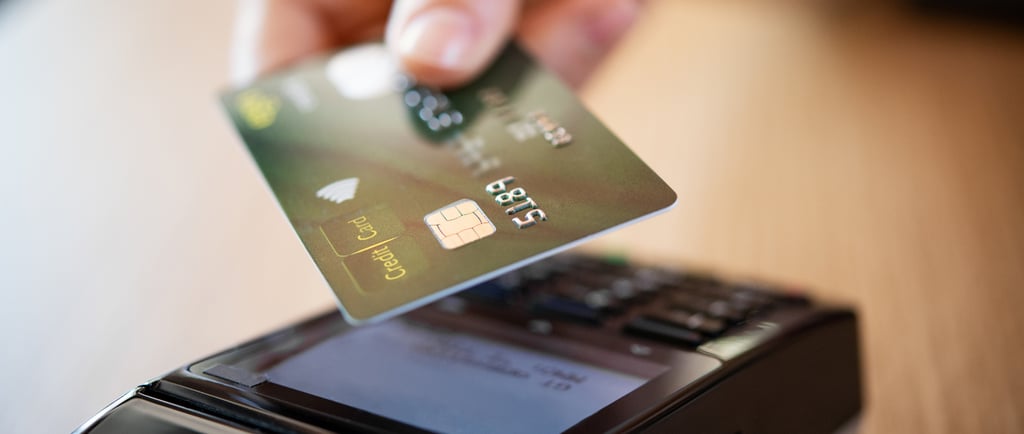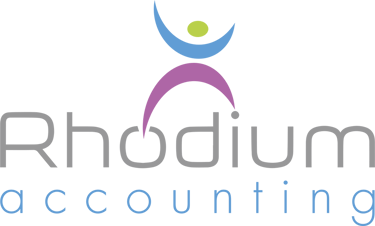7 Reasons Why You Should Open a Self Employed Business Bank Account.
Many people self employed people use their personal account as their business account but a better option may be a business account. This article explores why.
BOOKKEEPING


If you have recently become self-employed or are thinking of self-employment and wondering if you need to open a separate bank account, this article will guide you through what you need to consider and by the end, the answer to that question will be clear in your mind.
In the UK, as a self-employed person (sole trader), you are not legally required to have a separate business bank account. HMRC allows sole traders to use their personal bank account for business transactions, as personal and business income is treated as one entity.
1. Can I use my personal bank account for my business as a sole trader?
The answer to that question is yes and many self-employed people tend to do so. However, HMRC do encourage that you have a separate bank account and that is my recommendation as well and we will go into the reasons below. Some banks even have legal clauses in their contracts that restricts you from depositing income outside of personal use.
2. What are the benefits of having a Self-Employed Business Bank Account?
Easier Access to Loans, grants and other credit facilities: Some loans and grants will only be paid into a business bank account. So, if you are planning on applying for loans and grants to get your business off ground, then you may miss out if you don’t have a separate bank account that these can be paid into. Having a bank account also makes it easier to get a credit card.
A good example was during COVID when the Government gave out bounce back loans and self-employed income support grant that would only be paid into business bank accounts. This led to a flurry of sole traders rushing to open business bank accounts, which in turn led to the banks becoming inundated with requests and some even closing their waiting list as they could not deal with the deman
We never know what is round the corner so having business bank account separate from a personal account makes good sense.
Privacy: If you use or plan to use a professional such as a bookkeeper or an accountant to prepare you Self-assessment tax or VAT return, you will need to share your business records with them and you ideally do not want them to be going through your personal spending. Not only will it take them longer to prepare our return, some will charge you more Protects your personal banking information when sharing account details with clients
Tax Investigations : In the extreme case that the tax man investigates you, they may choose to freeze your bank account, while the investigation is ongoing, which will mean you will be unable to access your personal account if it is the same one you use for business. So have a separate account helps to provide clear documentation if you're ever audited or investigated.
Increased Credibility with Clients and Business Associates: You will come across more credible when you share you bank details with clients and it is a business account. Clients see your business name on cheques and transfers rather than your personal name Looks more established and professional. Easier to accept payments under your business name
Easier Business record keeping: Most banking apps now allow you to categorise your spending making your bookkeeping and record keeping easier and simpler. It also gives you a good idea of how well our business is doing if all your business expenses are being paid from business income.
Simplifies bookkeeping and accounting, especially your ability to use cash basis when you do your self-assessment tax return and prevents accidentally spending business money on personal items. .
You will also save time. According to Barclays, UK freelancers and sole traders spend up to 15 days sorting business expenses from their personal account. This challenge is removed when you set up a business bank account and only use it for business income and expenses.
Easier to monitor business performance and cashflow; Makes it easier to see your actual business profit and cash flow. If you use one account for both, it will be harder for you to know when you are supporting the business with your personal funds because all the expenses and income will be in lumped together in one account.
Ease of doing business: Some payment processors and business services require a business bank account. So if you plan to take debit or credit cards payments and need to use a merchant account, then you will need to have a separate business bank account.
3. What to look for when choosing a self-employed business bank account:
The promise of easy opening, extremely low or no fees and free banking can be tempting, but before you open a self-employed business bank account take some time to look beyond the offers. The trick is to ask questions and make sure you know exactly what the bank will be charging you once all the offers come to an end:
What are the monthly charges? Many accounts offer free banking for anything up to 18 months. It is therefore important that you know what the charges are once the free period is over. Switching business bank accounts can be time consuming, especially if you have to tell customers about changes to your bank details. It is not uncommon for clients to keep paying into the old account even though you have given them the details of the new one especially when you are dealing with big organisations such as local authorities where they have very stringent processes for changing supplier bank details to minimise risks and fraud. You can also end up running 2 business bank accounts while you are switching.
Do you need to make international payments, withdraw cash and pay in cheques : For many banks, these transactions attract banking charges. If your business is such that you need to make international payments regularly, then you should ensure whichever business account you choose does this for little or no fee. And on the odd occasion that you get a cheque, how easy is it to pay this in? Can you use a local post office if you don’t have a branch near you.
Mobile Banking app functionalities: Different banks offer different functionalities via their banking apps. Whichever account you choose ensure the app will do all the main things you need on a day-to-day basis to make your business life easier.
Do you think you will need business borrowing or an overdraft in the near future? Then this should be another important consideration for you when deciding which bank to choose as some banks are more geared towards transactional banking rather than offering credit and lending facilities.
Ease of Opening: I recently opened a bank account and I did not have to leave the comfort of my home. I have to be honest I did not believe how easy it was. Nowadays it should be that easy, so if you are looking at an account and you have to travel to the branch or worse still make several trips the to complete the account opening process, then maybe you should look at other options.
Integration with accounting software: This is a very important consideration especially with Making Tax Digital for Income Tax Regime coming into force from April 2026. You can read more about MTD for Income Tax here but one of the most important requirements is the need to file quarterly returns and this will be made so much easier for you or your accountant and bookkeeper If your bank has the functionality / ability to integrate very well with your accounting software to making bookkeeping easier and faster.
Choose a different bank to the one you use for your personal banking if possible: Although not essential I think it is easier to have that clear distinction. So, you know when you are taking about bank A you are talking about your business and when taking about bank B you are thinking about your personal account.
Location: It may also be that you need a bank that is easily accessible because of the type of business you are in, especially if you foresee that you will need to regular to your bank manager.
4. What you need to open a Self-Employed Business Bank Account:
Opening a business bank account involves quite a bit of paperwork but overall is not too different from opening a personal bank account, but it pays to prepare yourself first. You will need to provide certain information so the bank can establish who you are. This is also known as KYC (Know your customer checks). In most cases you will need to provide:
Proof of your identity such as passport or driving licence
Details of your business such as trading name and address
Proof of your address such a council tax or utility bill
Your personal details such as name, address, date of birth, address etc
A brief description of what your business does, expected turnover and an idea of money coming in and going out.
Overall, although there is usually a small monthly fee and the need to manage an additional bank account, the benefits of having a business bank account far outweigh the minor inconveniences, especially as your business grows and so the recommendation is to have a separate business bank account. Some of the really good ones based on reviews and ease of use at the time of writing include; Starling, Tide, and Virgin Money.
Blog content is for information purposes only and over time may become outdated as the tax landscape is constantly changing, although we do strive to keep it current and up to date. It is written to help you understand your taxes and is not to be relied upon as professional accounting, tax and legal advice. For additional help please contact our team, or a professional adviser.
